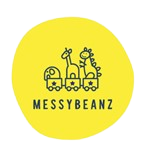Splashes of Fun: Why Messy Play is a Game Changer for Children with Special Needs
Messy play is more than just a fun activity for children; it's an enriching experience that can have profound benefits, especially for children with special needs and disabilities. Engaging in messy play activities, such as finger painting, sensory bins, and play dough, provides unique opportunities for development and connection. Here are several key benefits of messy play for these children:
1. Sensory Exploration
Messy play stimulates the senses—sight, touch, smell, and even sound. For children with sensory processing difficulties, this type of play can help them gradually become more comfortable with different textures and sensations. By exploring materials like sand, water, or paint, children can learn to manage their sensory inputs in a controlled and safe environment.
2. Fine and Gross Motor Skills Development
Manipulating materials during messy play promotes the development of both fine and gross motor skills. Activities such as squishing play dough, pouring water, or squeezing sponges require hand-eye coordination and strengthen hand muscles. These skills are crucial for daily tasks, such as writing or dressing, and messy play provides a fun way to practice them.
3. Encouraging Creativity and Imagination
Messy play is inherently open-ended, allowing children to express their creativity freely. This freedom fosters imagination and problem-solving skills as they create, explore, and experiment with different materials. For children with special needs, this kind of unstructured play can be particularly beneficial, as it encourages self-expression without the pressure of structured expectations.
4. Social Interaction and Communication Skills
Participating in messy play activities often involves working alongside peers, which can help improve social skills and communication. Children learn to share materials, take turns, and collaborate on projects. For those with disabilities, engaging in play with others can enhance social awareness and improve conversational skills in a relaxed setting.
5. Emotional Regulation and Self-Expression
Messy play can serve as a therapeutic outlet for emotions. Children can express feelings of joy, frustration, or curiosity through their interactions with the materials. This form of play also teaches emotional regulation, as children learn to manage their reactions to messiness and unpredictability, fostering resilience and adaptability.
6. Building Confidence and Independence
When children engage in messy play, they often take the lead in their exploration, which can boost their confidence. Successfully navigating through different activities encourages a sense of achievement and independence. For children with special needs, this sense of accomplishment can be particularly empowering.
7. Creating Meaningful Connections
Messy play is an excellent way for caregivers and educators to bond with children. The shared experience of getting messy can foster a sense of trust and safety, encouraging children to open up and engage more fully. This connection is crucial for emotional development and can enhance a child's willingness to explore new challenges.
Conclusion
Incorporating messy play into the routines of children with special needs and disabilities can yield a multitude of developmental benefits. Not only does it provide sensory stimulation and motor skill enhancement, but it also nurtures creativity, social skills, and emotional growth. By embracing the joy and chaos of messy play, caregivers can create a supportive environment where all children can thrive and express themselves. So, grab those paints and get messy—it’s all part of the fun and learning!




